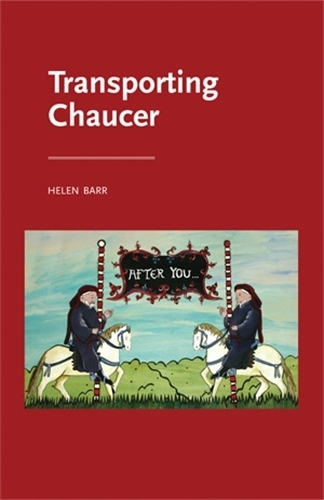
Transporting Chaucer
(Hardback)
Available Formats
Publishing Details
Transporting Chaucer
By (Author) Helen Barr
Manchester University Press
Manchester University Press
31st October 2014
United Kingdom
Classifications
Physical Properties
Hardback
288
Width 138mm, Height 216mm
Description
Drawing on the work of British sculptor Antony Gormley, alongside more traditional literary scholarship, this book argues for new relationships between Chaucer's poetry and works by others. Chaucer's playfulness with textual history and chronology anticipates how his own work is figured in later - and earlier - texts. Responding to this, the book presents innovative readings of the relationships between medieval texts and early modern drama, literary texts and material culture. It re-energises conventional models of source and analogue study to reveal unexpected - and sometimes unsettling - literary cohabitations. At the same time, it exposes how associations between architecture, pilgrim practice, manuscript illustration and the soundscapes of dramatic performance reposition how we read Chaucer's oeuvre and what gets made of it. An invaluable resource for scholars and students of all levels with an interest in medieval English literary studies and early modern drama, Transporting Chaucer offers a new approach to how we encounter texts through time. -- .
Reviews
'This dazzlingly original study gives us a new Chaucer, or I should say "new Chaucers": a multiplicity of Chaucers within and around and subsequent to his text. Helen Barr populates her book with Chaucer stand-ins, doubles, images, lurkers and avatars all testifying to the inexhaustible suggestiveness of the original text and its unending cultural resonance. This is a bold book, a true departure, teeming with new leads and prompts and suggestions. It is essential reading, the best on its subject to appear in a long, long time.
Paul Strohm, Anna S. Garbedian Professor Emeritus of the Humanities, Columbia University
'Transporting Chaucer is a quirky book, even admittedly so. It opens with a consideration of a suspended modern sculpture in Canterbury Cathedral that poses questions of place, memory and embodiment that the author wishes to raise more generally as well as a sense of surprise and accidental discovery, governed by the intrusion of the past into the present (and vice versa) that animates the project(s).'
Elizabeth Scala, The Review of English Studies, 18 June 2015
Author Bio
Helen Barr is Professor of English Literature at Lady Margaret Hall, University of Oxford
